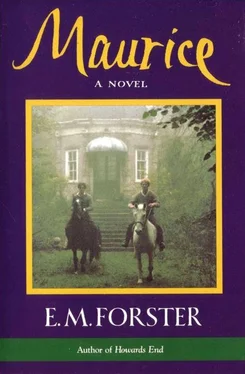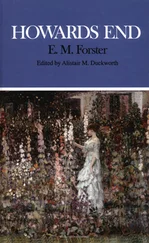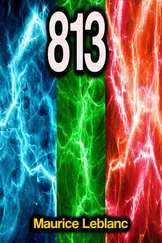The boy had always been a scholar, awake to the printed word, and the horrors the Bible had evoked for him were to be laid by Plato. Never could he forget his emotion at first reading the Fhaedrus. He saw there his malady described exquisitely, calmly, as a passion which we can direct, like any other, towards good or bad. Here was no invitation to licence. He could not believe his good fortune at first — thought there must be some misunderstanding and that he and Plato were thinking of different things. Then he saw that the temperate pagan really did comprehend him, and, slipping past the Bible rather than opposing it, was offering a new guide for life. "To make the most of what I have." Not to crush it down, not vainly to wish that it was something else, but to cultivate it in such ways as will not vex either God or Man.
He was obliged however to throw over Christianity. Those who base their conduct upon what they are rather than upon what they ought to be, always must throw it over in the end, and besides, between Clive's temperament and that religion there is a secular feud. No clear-headed man can combine them. The temperament, to quote the legal formula, is "not to be mentioned among Christians", and a legend tells that all who shared it died on the morning of the Nativity. Clive regretted this. He came of a family of lawyers and squires, good and able men for the most part, and he did not wish to depart from their tradition. He wished Christianity would compromise with him a little and searched the Scriptures for support. There was David and Jonathan; there was even the "disciple that Jesus loved." But the Church's interpretation was against him; he could not find any rest for his soul in her without crippling it, and withdrew higher into the classics yearly.
By eighteen he was unusually mature, and so well under control that he could allow himself to be friendly with anyone who attracted him. Harmony had succeeded asceticism. At Cambridge he cultivated tender emotions for other under-graduates, and his life, hitherto gray, became slightly tinged with delicate hues. Cautious and sane, he advanced, nor was there anything petty in his caution. He was ready to go further should he consider it right.
In his second year he met Risley, himself "that way." Clive did not return the confidence which was given rather freely, nor did he like Risley and his set. But he was stimulated. He was glad to know that there were more of his sort about, and their frankness braced him into telling his mother about his agnosticism; it was all he could tell her. Mrs Durham, a worldly woman, made little protest. It was at Christmas the trouble came. Being the only gentry in the parish, the Durhams communicated separately, and to have the whole village looking on while she and her daughters knelt without Clive in the middle of that long footstool cut her with shame and stung her into anger. They quarrelled. He saw her for what she really was — withered, unsympathetic, empty — and in his disillusion found himself thinking vividly of Hall.
Hall: he was only one of several men whom he rather liked. True he, also, had a mother and two sisters, but Clive was too level-headed to pretend this was the only bond between them. He must like Hall more than he realized — must be a little in love with him. And as soon as they met he had a rush of emotion that carried him into intimacy.
The man was bourgeois, unfinished and stupid — the worst of confidants. Yet he told about his home troubles, touched out of all proportion by his dismissal of Chapman. When Hall started teasing he was charmed. Others held off, regarding him as sedate, and he liked being thrown about by a powerful and handsome boy. It was delightful too when Hall stroked his hair: the faces of the two people in the room would fade: he leant back till his cheek brushed the flannel of the trousers and felt the warmth strike through. He was under no illusion on these occasions. He knew what kind of pleasure he was receiving, and received it honestly, certain that it brought no harm to either of them. Hall was a man who only liked women — one could tell that at a glance.
Towards the end of the term he noticed that Hall had acquired a peculiar and beautiful expression. It came only now and then, was subtle and lay far down; he noticed it first when they were squabbling about theology. It was affectionate, kindly, and to that extent a natural expression, but there was mixed in it something that he had not observed in the man, a touch of — impudence? He was not sure, but liked it. It recurred when they met suddenly or had been silent. It beckoned to him across intellect, saying, "This is all very well, you're clever, we know — but come!" It haunted him so that he watched for it while his brain and tongue were busy, and when it came he felt himself replying, "I'll come — I didn't know."
"You can't help yourself now. You must come."
"I don't want to help myself."
"Come then."
He did come. He flung down all the barriers — not at once, for he did not live in a house that can be destroyed in a day. All that term and through letters afterwards he made the path clear. Once certain that Hall loved him, he unloosed his own love. Hitherto it had been dalliance, a passing pleasure for body and mind. How he despised that now. Love was harmonious, immense. He poured into it the dignity as well as the richness of his being, and indeed in that well-tempered soul the two were one. There was nothing humble about Clive. He knew his own worth, and, when he had expected to go through life without love, he had blamed circumstances rather than himself. Hall, though attractive and beautiful, had not condescended. They would meet on an equality next term.
But books meant so much for him he forgot that they were a bewilderment to others. Had he trusted the body there would have been no disaster, but by linking their love to the past he linked it to the present, and roused in his friend's mind the conventions and the fear of the law. He realized nothing of this. What Hall said he must mean. Otherwise why should he say it? Hall loathed him — had said so, "Oh, rot" — the words hurt more than any abuse, and rang in his ears for days. Hall was the healthy normal Englishman, who had never had a glimmer of what was up.
Great was the pain, great the mortification, but worse followed. So deeply had Clive become one with the beloved that he began to loathe himself. His whole philosophy of life broke down, and the sense of sin was reborn in its ruins, and crawled along corridors. Hall had said he was a criminal, and must know. He was damned. He dare never be friends with a young man again, for fear of corrupting him. Had he not lost Hall his faith in Christianity and attempted his purity besides?
During those three weeks Clive altered immensely, and was beyond the reach of argument when Hall — good, blundering creature — came to his room to comfort him, tried this and that without success, and vanished in a gust of temper. "Oh, go to Hell, it's all you're fit for." Never a truer word but hard to accept from the beloved. Clive's defeat increased: his life had been blown to pieces, and he felt no inward strength to rebuild it and clear out evil. His conclusion was "Ridiculous boy! I never loved him. I only had an image I made up in my polluted mind, and may God help me to get rid of it."
But it was this image that visited his sleep, and caused him to whisper its name.
"Maurice…"
"Clive…"
"Hall!" he gasped, fully awake. Warmth was upon him. "Maurice, Maurice, Maurice___Oh Maurice —"
"I know."
"Maurice, I love you."
"I you."
They kissed, scarcely wishing it. Then Maurice vanished as he had come, through the window.
13
"I've missed two lectures already," remarked Maurice, who was breakfasting in his pyjamas.
Читать дальше












